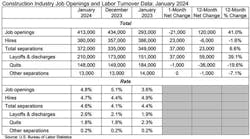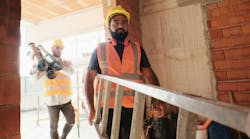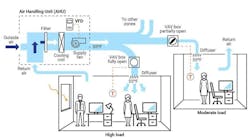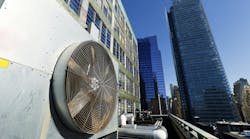With his rhetoric and threats related to foreign manufacturing, President Trump was originally viewed as a hero to industry. But if his trade war with China continues, the HVACR industry will suffer.
On April 3, The Office of the United States Trade Representative (USTR) announced a proposed list of Chinese imports that could be subject to an additional 25 percent tariff once the list becomes final. The list, which includes various HVACR and water heating products, covers approximately 1,300 tariff lines — approximately $50 billion worth of goods —according to the USTR. Background information on the Section 301 investigation is available from the USTR Fact Sheet published on March 22.
Air Conditioning, Heating and Refrigeration Institute (AHRI) today provided the list of AHRI member HVACR products that could be hit with extra 25 percent tariffs. Included in the list: boilers, compressors, air conditioners, furnaces, refrigerators, freezers, water heaters, heat exchangers, and control equipment. For the full list of member products affected and important dates see DOWNLOAD BELOW.
Comments on the list are due to the USTR by May 11, 2018. No dates were provided in the announcement for when the product list would be finalized, or when the tariffs would go into effect.
The USTR will hold a public hearing at 10:00 a.m. on May 15 at the U.S. International Trade Commission Headquarters, 500 E St. SW, Washington, D.C. Members must file a request to appear and submit a summary of testimony by April 23.
On April 4, China responded to this tariff list with a retaliatory list of 106 products that would be subject to a 25 percent tariff. The list includes agricultural products. AHRI staff did not identify any HVACR and water heating products in the retaliatory list.
The AHRI shared its concerns in letters to President Trump, commerce secretary Wilbur Ross and US trade representative Robert Lighthizer, that it did not support additional tariffs on steel and aluminum due to their impact on manufacturers and consumers.
In a statement, AHRI president and CEO Stephen Yurek said: “As major users of steel and aluminum, we have been proactive in explaining to the administration that the HVACR and water heating industry would be negatively impacted by an increase in tariffs, as would the consumers that rely on the products we manufacture. While we have been pleased with the Trump Administration’s enthusiastic support for manufacturing, we believe this step to be injurious, rather than helpful, to our efforts to increase American manufacturing and create jobs,” Yurek said.
Paul Stalknecht, president/CEO of Air Conditioning Contractors of America has also expressed concern over the impact higher tariffs on steel and aluminum would have on both contractors and their customers.
“When the price of HVACR equipment increases, consumers who are in need of a new system trend toward cut-rate and unqualified individuals to service or replace their equipment. It also shifts the mindset of consumers to opt for putting “Band-Aids” on ageing systems instead of replacing them with today’s more efficient products,” Stalknecht said.
AHRI will be consulting with members and others soon, regarding the proposed USTR list. James Walters from AHRI's office of international affairs, said such a meeting is normal procedure for issues affecting AHRI membership.
"We ping members again after the Alert, consult with industry committee leadership and others to both get new facts, and to always calibrate our analysis and inquiries to member needs as told to us," Walters said. "We also check with government folks on latest developments and talk with colleagues in related associations."







